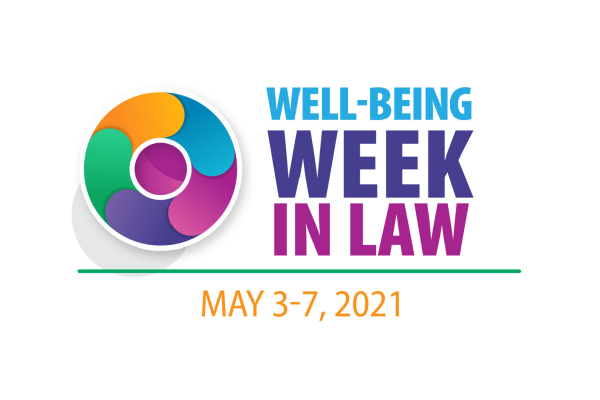Resilience is a critical skillset for lawyers, law students, and judges. Don’t wait to start building yours.
Resilience is the ability to persevere through adversity and come out stronger than you were before. Adversity is par for the course of the adversarial justice system here in the US.
Resilience is a skillset that anyone can learn and apply to any area of their life. People are not “born resilient”; it’s not a personality trait that some have and others do not. People become resilient as they respond to difficulties in their lives.
So the good news is that you can become more resilient — and the bad news is that your life requires hardship to develop resilience. Then again, if you were living with the delusion that you could avoid hardship in your life, let me dispel that notion right now. It is not a question of whether you will encounter hardship. It is a question of how you will respond to it.
No matter what your particular stress is — client issues, financial anxiety, overwhelmed by technology, opposing counsel’s attitude — changing the way you think about and respond to that stress can turn a dreaded situation into an opportunity for building resilience. One place to start: Make a list of the things in your day that drain you of energy and joy. What would you prefer to avoid or actively wish would magically go away?
START BUILDING THE SKILLS NOW.
There are many ways to increase resilience — you can start with these three tips to help you invest your time and energy effectively.
1. Ask yourself, “What else could this be?”
One key component of resilience is the ability to see things from multiple perspectives. You limit your ability to do that when you get locked into interpreting a particular interaction or situation in a fixed way. The classic way of limiting perspective on a stressor is to think of it as a crisis, or impending crisis. “My client is not paying my fee” turns into a fear that this will result in making no money, becoming homeless and starving on the street one day. Any crisis will make you feel a heightened level of stress, which either prompts you to avoid the situation or attack it — the “fight or flight” syndrome.
Asking yourself “what else could this be” is a creative problem-solving technique that helps to challenge your assumptions. Or, another way to put this is to ask: “What is this problem an opportunity for?” Seeing a stressful event as an opportunity will allow you to see potential upsides to a stressor and use it for good. So, for example, a stressful confrontation becomes an opportunity to practice speaking calmly and confidently to an upset client, thereby making you better able to handle these situations.
What else could failure be? An opportunity to learn a lot and improve more effectively than you otherwise would have. Some of the most successful individuals work with the Fail Early, Fail Often, and Fail Fast. Find more on overcoming perfectionism to learn and grow from failure here. To be clear, one thing failure is NOT: an opportunity to scapegoat. Find more on resisting the temptation to blame others here — so you can focus on your own learning.
2. Don’t wait for retirement to enjoy hobbies.
Enjoying hobbies and otherwise having fun are not just child’s play or activities you should postpone until retirement. Hobbies and fun activities are essential for creative thinking and well-being. Not only do they provide a way to take a break from work (or constantly thinking about work), they also are an opportunity to use different parts of your brain, interact with others differently, see things from a different perspective, and generate new, effective solutions to obstacles.
Feeling stumped about how to handle a problem? Stop trying to solve it. Taking a break and doing something completely different often helps to provide “aha moments” of insight.
3. Focus on friends and family.
Let’s face it, law school and the demanding legal environment have required you to spend less time with friends and family. It is a necessary sacrifice most lawyers make to get through law school, pass the bar and start a legal career. Unfortunately, what starts as a temporary sacrifice can transform into a lifestyle.
Having a strong social support network is essential to resilience. The most resilient people have a network they feel supported by, know they can turn to for help, and to whom they offer help in a pattern of mutual support. Nothing increases the weight of a burden more than thinking you are alone in that struggle. Talking with friends, family and colleagues can help give you a different perspective, validate your feelings and concerns, and help you think through options that you might not have considered before.
CONTINUE TO STRENGTHEN YOUR RESILIENCE.
Resilience needs resistance to strengthen, not unlike our physical muscles. So look at obstacles in your life as opportunities to choose to improve your resilience. As you practice shifting your perspective to building resilience more, you’ll feel a greater sense of control in your life.
Related Resources:
- Psychological Tools for Lawyers to Build Resilience for Prolonged Pandemic Stress (Mass LOMAP Webinars for Busy Lawyers)
- Penn Resilience Program, covering 21 skills in six categories: Self-Awareness, Self-Regulation, Mental Agility, Strengths of Character, Connection, and Optimism.
- American Psychological Association on Building Resilience
- Practicing Self-Care: Tips for Lawyers and Law Students
- Perceived and Enacted Supports for Resilience (LCL MA Blog)
- Internal Resources for Resilience (LCL MA Blog)
- How to Shift Your Mindset and Choose Your Future (Tom Rivett-Carnac, TED2020)
- How to Be Your Best Self in Times of Crisis (Susan David, TED Connects, March 2020)
- It’s OK to Feel Overwhelmed. Here’s What to Do Next (Elizabeth Gilbert, TED Connects, April 2020)
- To Overcome Challenges, Stop Comparing Yourself to Others (Dean Furness, TED@WellsFargo, Feb. 2020)
- 3 Secrets of Resilient People (TEDxChristchurch, Aug, 2019)
. . .
An earlier version of this post was originally published by AttorneyatWork.com as Three Tips for Becoming More Resilient.




